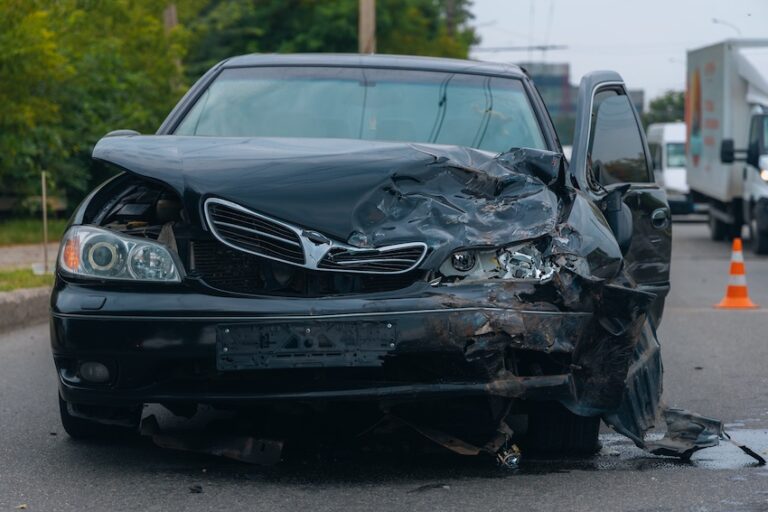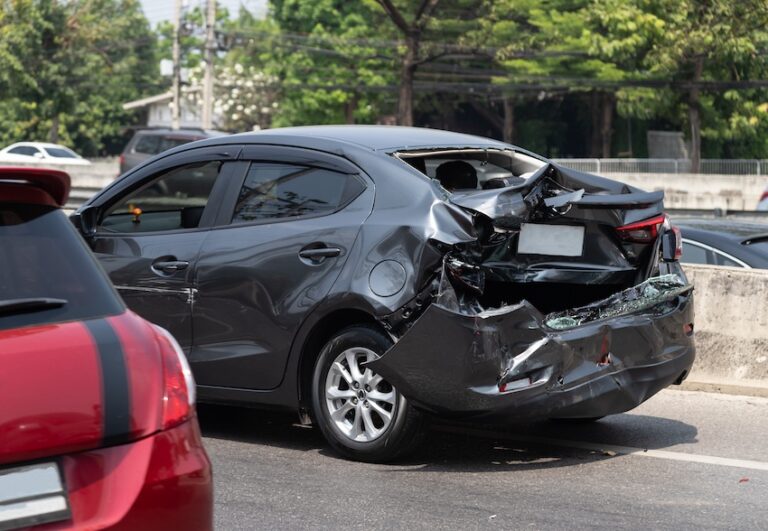Rideshare services like Uber and Lyft have transformed transportation, offering convenience and accessibility to millions. However, accidents involving rideshare vehicles can introduce complexities that traditional car accidents do not, especially when determining liability and navigating insurance claims. In North Carolina, understanding your legal rights, the steps to take after an accident, and how to pursue compensation is critical for protecting your well-being and securing the financial recovery you deserve.
In this blog, we’ll cover essential steps after your rideshare driver gets into an accident, insurance coverage, legal rights in North Carolina, and the importance of working with an experienced rideshare accident attorney in Charlotte to protect your rights and secure fair compensation.
Immediate Steps to Take After a Rideshare Accident
Knowing what to do immediately after a rideshare accident can protect your safety and help you navigate the legal and insurance processes effectively.
Ensure Safety
The first priority after a motor vehicle accident is to ensure everyone’s safety. Check yourself, the rideshare driver, and any passengers for injuries. If medical attention is needed, call 911 immediately. If the accident is minor and it is safe to move, relocate the vehicle to the side of the road to avoid further collisions. Activate hazard lights or use cones and warning triangles if available to alert other drivers.
Contact Emergency Services
Even if injuries appear minor or the accident seems straightforward, contacting emergency services is essential. Call 911 to report the incident and provide clear details about the location and circumstances of the crash. Emergency personnel can evaluate the situation, assist the injured, and create an official accident report, which may be critical for future legal or insurance claims. Calmly inform any passengers of the situation and reassure them that help is on the way. Having an official accident report is crucial for the insurance company when navigating compensation claims.
Exchange and Document Information
Gathering accurate information from the other driver and all parties involved is crucial for resolving the aftermath of the accident. Exchange contact details, driver’s license numbers, and insurance information with all parties involved. Take photos of vehicle damage, license plates, road conditions, and any other relevant details. If there are witnesses, ask for their contact information, as their testimony could prove valuable.
Inform the Rideshare Company and Rideshare Driver
As a passenger or driver, notify the rideshare company of the accident through their app or customer service channels. Most companies, like Uber and Lyft, have specific protocols for handling accidents. Follow their instructions, which may include submitting documentation such as photos and police reports. Prompt reporting helps ensure proper handling of insurance coverage and claims.
Understanding Insurance Coverage in Rideshare Accidents
Understanding how insurance coverage applies in a rideshare accident is key to determining your rights and potential compensation.
Rideshare-Specific Insurance Requirements and Contingent Liability Coverage
Rideshare companies like Uber and Lyft provide different levels of insurance coverage based on the driver’s status at the time of the accident. Comprehensive and collision coverage are crucial for rideshare drivers to ensure they can claim damages to their own vehicle, provided they have such coverage under their personal car insurance policy. When the driver’s app is off, only their personal auto insurance applies. Contingent liability coverage plays a vital role in providing financial protection in scenarios where a driver’s personal insurance may not cover certain incidents due to business use exceptions.
Complexities of Claims
Claims involving rideshare accidents can be more complicated than traditional car accident claims. Determining which insurance policy applies depends on the precise circumstances of the accident and the driver’s activity at the time. If the driver was not actively working for the rideshare company, their driver’s personal insurance may be the sole coverage, which can lead to disputes if their policy does not account for rideshare activity. Identifying the correct source of compensation requires careful documentation and, often, legal expertise.
Importance of Prompt Reporting
Accidents involving rideshare services require immediate reporting to ensure access to the appropriate coverage. Both passengers and drivers must notify the rideshare company and, if applicable, their personal insurance provider. Prompt reporting helps clarify which policies are in effect and ensures the claims process begins without unnecessary delays.
Legal Rights and Procedures in North Carolina
Knowing your legal rights and the procedures that apply to rideshare accidents in North Carolina can help you take informed steps to protect your interests.
Statute of Limitations
In North Carolina, individuals injured in a car accident have three years from the date of the crash to file a lawsuit or settle a claim. This time limit, known as the statute of limitations, applies to all personal injury cases, including those involving rideshare services. Although this may seem like ample time, initiating a claim early is crucial to preserve evidence, gather documentation, and allow for thorough negotiation or litigation if necessary.
Contributory Negligence Rules
North Carolina follows a strict contributory negligence standard, which can significantly impact accident claims. Under this rule, if the injured party is found to be even 1% at fault for the accident, they are barred from recovering compensation. This high standard requires victims to clearly establish fault through evidence such as accident reports, witness testimony, and expert opinions. Insurance companies often use this rule to deny claims, making it vital to work with a knowledgeable attorney.
Rideshare Company Responsibilities
Rideshare companies operating in North Carolina are required to meet specific legal obligations to ensure safety and accountability. Rideshare drivers are classified as independent contractors, which means they do not have access to certain benefits like workers’ compensation, and this classification can affect liability in accidents. These include conducting background checks on drivers, maintaining proper insurance, and ensuring regular vehicle inspections.
If a rideshare company fails to adhere to these regulations and that failure contributes to an accident, it may be held liable. Understanding the company’s responsibilities can open additional avenues for compensation in certain cases.
Pursuing Compensation
Victims of rideshare accidents in North Carolina have the right to seek compensation for their losses, but understanding the process and types of damages available is crucial.
Types of Recoverable Damages
Compensation for rideshare accident victims can cover both economic and non-economic damages. Economic damages include tangible costs such as medical bills, lost wages, property damage, and necessary services like childcare or transportation. Non-economic damages address intangible losses, including physical pain, emotional distress, disfigurement, and diminished quality of life. Accurately valuing these losses often requires expert analysis and detailed documentation.
Calculating Fair Compensation
Determining a fair settlement is rarely straightforward, especially for serious injuries. Estimating future medical expenses or lost earning potential requires input from healthcare providers, vocational experts, and life care planners. Non-economic damages, such as pain and suffering, are even more subjective, often relying on legal precedents or multipliers based on economic losses. Comprehensive evidence is essential to support a strong claim.
Challenges in Negotiation and Litigation
Insurance companies representing rideshare drivers or companies often prioritize minimizing payouts. They may dispute liability, downplay the severity of injuries, or offer low initial settlements. Third-party liability coverage plays a crucial role in these disputes, as it provides essential protection required by state law when a rideshare driver is logged into the app but not actively transporting a passenger.
Skilled negotiation is essential to counter these tactics and achieve fair compensation. In some cases, filing a lawsuit and preparing for trial may be necessary if negotiations fail to yield a satisfactory outcome.
Why You Need an Experienced Attorney
Hiring an experienced attorney is often essential for navigating the complexities of a rideshare accident and ensuring your rights are protected.
Navigating Liability Challenges
Rideshare accidents often involve multiple parties and complex insurance policies. Determining liability requires a clear understanding of the driver’s status, applicable insurance coverages, and relevant laws. An experienced attorney can investigate the details, gather evidence, and establish fault, ensuring you are not unfairly held responsible under North Carolina’s strict contributory negligence rules.
Maximizing Compensation
Calculating the full scope of your damages, both economic and non-economic, is a nuanced process. Attorneys work with medical experts, economists, and life care planners to determine the value of future expenses, lost earnings, and pain and suffering. With an attorney advocating on your behalf, you are more likely to secure a settlement that reflects the true impact of the accident.
Dealing with Insurance Companies
Insurance adjusters often aim to minimize payouts, using tactics like disputing liability or offering low initial settlements. An attorney experienced in rideshare cases knows how to counter these strategies and negotiate effectively. If necessary, they can escalate the matter to litigation, ensuring your interests are represented in court. It is crucial to understand the role of Uber’s insurance company in the settlement process to avoid settling claims too quickly without consulting an attorney.
Reducing Stress and Providing Support
Beyond legal representation, an experienced attorney can guide you through the process and handle the complexities, allowing you to focus on recovery. They can connect you with trusted medical providers, manage communication with insurers, and keep you informed about your case’s progress.
Contact an Experienced Charlotte Rideshare Accident Lawyer Today!
If you’ve been involved in a rideshare accident, navigating the legal and insurance challenges can feel overwhelming. Let our experienced team at Panchenko Law Firm guide you every step of the way. We specialize in protecting the rights of accident victims and ensuring they receive the compensation they deserve for their injuries and losses.
Contact us at (704) 900-7675 today for a free case review!





